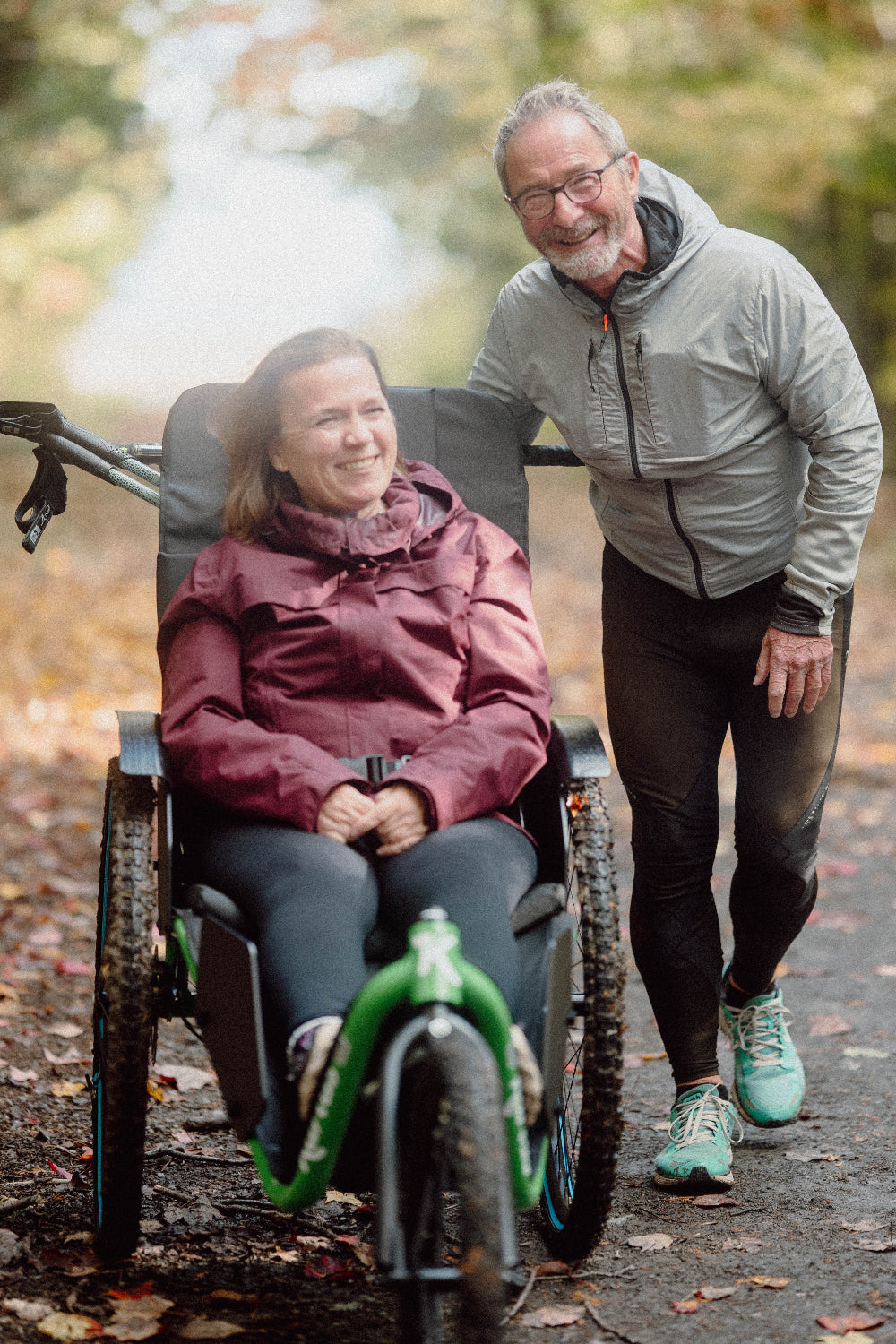In our society, it is crucial to showcase people who, day after day, take positive action with their work. This week, Elise Beaudet, a recreation technician for the Centre Multiservices de Santé et de Service Sociaux Cloutier, talk to us about her career, her experience working with an older crowd, and her interest in the outdoors.
KARTUS : Hi Elise ! Can you tell us a little why you choose this line of work ?
ELISE BEAUDET : I began at an early age : in fact, I never had any other job ! When I was 12, my grandfather suddenly became paralyzed. I had a close relationship with him, so when he was placed in a CHSLD, I immediately became a volunteer there. Then, some years later, I got a summer job in the recreative field. I then completed my studies to become a technician in 2005. During that time, it was the people I met who really solidified my interest. Recreation technicians are positive, helpful and always smiling : I wanted to be part of that ! But it’s the relationships with older people that are incredible. They are always happy to see us, and we are there to bring them joy. What more can you ask ?
K : Can you talk about the reality of living in long-term residencies ?
EB : For me, long-term residencies are a great place. I find that the stories we hear are always the negative ones, the ones where it really went wrong : the reality is completely different. There’s so many positive interventions in our homes, so many happy moments, but of course, it’s the bad stuff people know about. Me and my colleagues really love our job : if it wasn’t the case, trust me, we would do something else real quick ! In our network of residencies, we now publish a newspaper to showcase the good that’s happening every day. I think it’s a great idea.
As for the activities, I’ve seen an evolution over time for sure. Without sounding dismissive about it (because it can be fun), before, it was a lot of bingo and not much else. Now, there’s a lot of variety. I think that one of the goals of my job is to help each individual find an activity that he likes. To bring them the joy they once felt doing something. Some like museums, others played golf in Florida : it’s important to value the interests of everyone as much as possible.

K : In general, how are seniors living with the isolation ?
EB : Obviously, it’s a little different for everyone. What I see most often is with our older residents, who are 90 years old – if their children are 70 and have grandchildren of their own, it complicate things. Sometimes, it’s a degenerative disease that people find hard to accept, or cognitive memory loss that puts a strain on close relationships. I do think, however, that seniors living in long-term residencies are less lonely than many semi-autonomous people, because we provide a lot of human contact during the week.
K : What was the impact of the COVID-19 on your work ?
EB : I can only talk for my work environment : sadly, we were badly hit by the virus, with 52 deaths. 135 staff members were infected. We couldn’t stop the spread even with the safety measures. My work suddenly shifted : since we couldn’t go out, I acted as an intermediate with residents and their loved ones, helping them with video conferencing. We also had problems we didn’t see coming : for example, the batteries for the hearing aids were normally brought by the family. With contact forbidden, we had to take care of that problem. Same thing for winter and summer clothes !
K : How did you first heard about Kartus ?
EB : I was at the Recreation Symposium, and I followed a workshop by someone from the Sherbrooke Shared Runs. When I saw the positive outcome in people’s lives, I thought that our long-term residence needed one of those chairs. With the help of the Fédération Québécoise des Loisirs en Institution, the Chevaliers de Colomb, the Centre Athlétique de Trois-Rivières, the l’URLS Mauricie and Cloutier-Durivage volunteers, we bought a Kartus for our center.
K : Was it hard to convince people to try the adaptive chair ?
EB : At the start, people were a little shy to try it. I think they thought it was a stroller. The first resident that tried it loved it so much ! She came back with a huge smile on her face, talking about her long bike ride. The other people were convinced then. When we were walking together, she told me that she felt «normal», as if she was any biker or runner. People were waving their hands at us, it was beautiful to see. Since then, the staff learned about the chair : when they feel a resident has an interest for it, they propose to try it right away. As an activity, it became very popular !
People are now eager to go for a stroll. The hardest part is getting them out of the running chair afterwards !






